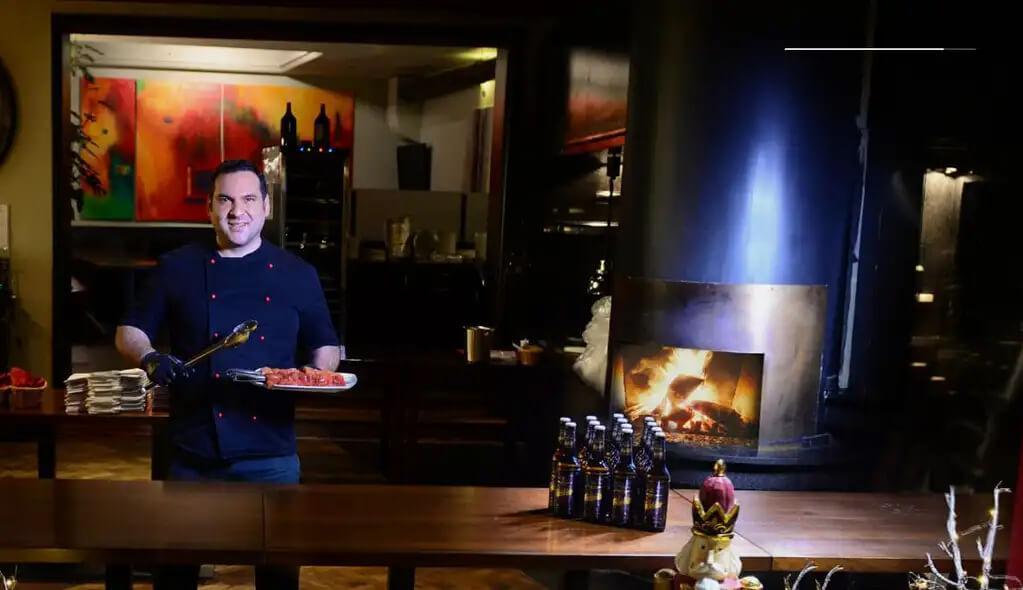2020 has been an awkward year. Probably you already noticed. Just next to our office there is a great restaurant called Steg7. Marco and his team have hosted many of our business lunch meetings throughout the last years, as well as most of our Christmas events. This year, Marco suffered a dramatic revenue loss, as many other businesses did. At the same time, our customers experienced (at least for their online businesses) significant growth above the rates of previous years. searchHub also grew this year much more than the last. We managed to integrate with a number of leading e-commerce players. Cyberport, JAKO-O, Lampenwelt, INTERSPORT – just to name a few of them.

Steg7 – in Pforzheim – Marco and his team aren’t helped by autoscaling
This discrepancy makes me think. It also gives me a bad conscience. Did Marco do anything wrong? Not at all. His burgers still are world-class, as is his pasta, his vegetarian tables. And his solution: he started a pickup service early in the pandemic, and we love it! So, who did what wrong?
I have the impression that we sometimes look at our world as if it were a Kubernetes cluster (don’t know what this is? Watch this video!, and come back). We love growth. We love scaling. Even more so, we love scaling and growing businesses. Autoscaling – what a beautiful word created by some really clever kubernetes marketing division.
When discussing the growing numbers of Covid-19 infected people I often hear: Our government has totally failed, they should have increased resources for the healthcare system so we would now be able to handle the situation appropriately. While I totally agree that our healthcare system has suffered a lot in terms of “make it cheaper”, “be more efficient”, “treat patients as cases with fixed cost compensation”, I mostly disagree that short-term autoscaling is a solution to the current crisis. Why is that, you ask?
Ain’t No Autoscaling for People.
Maybe you have already read my previous blog post- “Hire or Higher to Go Further”. What happens if you hire a new senior developer capable of doing excellent AI, ML, CI, CD, XY stuff? You’ll probably buy a premium dev laptop with a huge, and fast SSD, a number-crunching CPU along with loads of RAM. Then you’ll buy a height-adjustable desk, a high-quality chair, noise reduction headsets, and maybe even rent some new office space. And after that, you’ll even provide a Nespresso machine (with sustainable capsules from Vitaboni). And not until after the fourth week of ramp-up and first tasks with your new developer do you finally realize that in fact, you hired a totally gifted, but inexperienced junior who somehow made it to convince you during the interview. You can scale hardware easily. But you can’t simply scale those senior developers and spawn a replica. Good news: in the software business, you can simply revert the bugs and bring your stack back to stable.
Imagine the same situation for an ICU department in a hospital. You can buy new ICU beds, new ventilation machines, you can even build new hospitals. But you can’t simply scale the experienced healthcare workers and doctors. So you need to rely on the newbies. But be careful: the ICU doesn’t have anything like a “git revert”, if a totally gifted and dedicated but inexperienced healthcare worker treats an intensive ventilation patient incorrectly. “kubectl scale” does not work in the real world. Healthcare workers are not “replica”. And patients are not pods that will simply respawn after being “deleted”.
It’s Only Autoscaling if You Fully Meet Your SLA

With our SearchHub SLAs, we constantly keep a close eye on the growth of our customers. We love to see those lines pointing to the upper right corner in a traffic chart. And, of course, we prepare well for high-traffic during peak seasons like 2020’s black week. SearchHub even gets better with more traffic – the more data points, the more knowledge, the better the search results. Our hybrid SaaS solution can handle significantly more than 10,000 requests per second. And our background data processing that is generating new AI models auto-scales. Our SLA guarantees that we deliver stable performance and quality of service. Only when this guarantee is met, does autoscaling deserve its name.
Have you ever experienced a classic standalone server running a critical process at 80% load? This will run almost as smoothly as with 20% load and you won’t see a significant impact on request processing and stability. Have you ever experienced the same machine at 101% load? It will hardly manage to answer a single request without a timeout or other kind of failure, most likely it will become totally unstable. The only way to get it up and running again is to: stop the traffic.
Our healthcare system is like a classic server before kubernetes. Like it or not: you can’t autoscale it without lowering your SLA. But lowering the SLA will cause fatal errors.
We MUST stop the traffic.
Let’s do whatever it takes. Wear masks. Avoid contacts. Maybe even celebrate the second most silent night in Christmas history. Use the vaccine. Get the world up and running again. Do it for Marco. Do it for healthcare workers. And do it for the thousands of people that would otherwise die way too early.
Merry Christmas and have a good and healthy (I mean it more than ever this year) new year
Siegfried Schüle CEO













